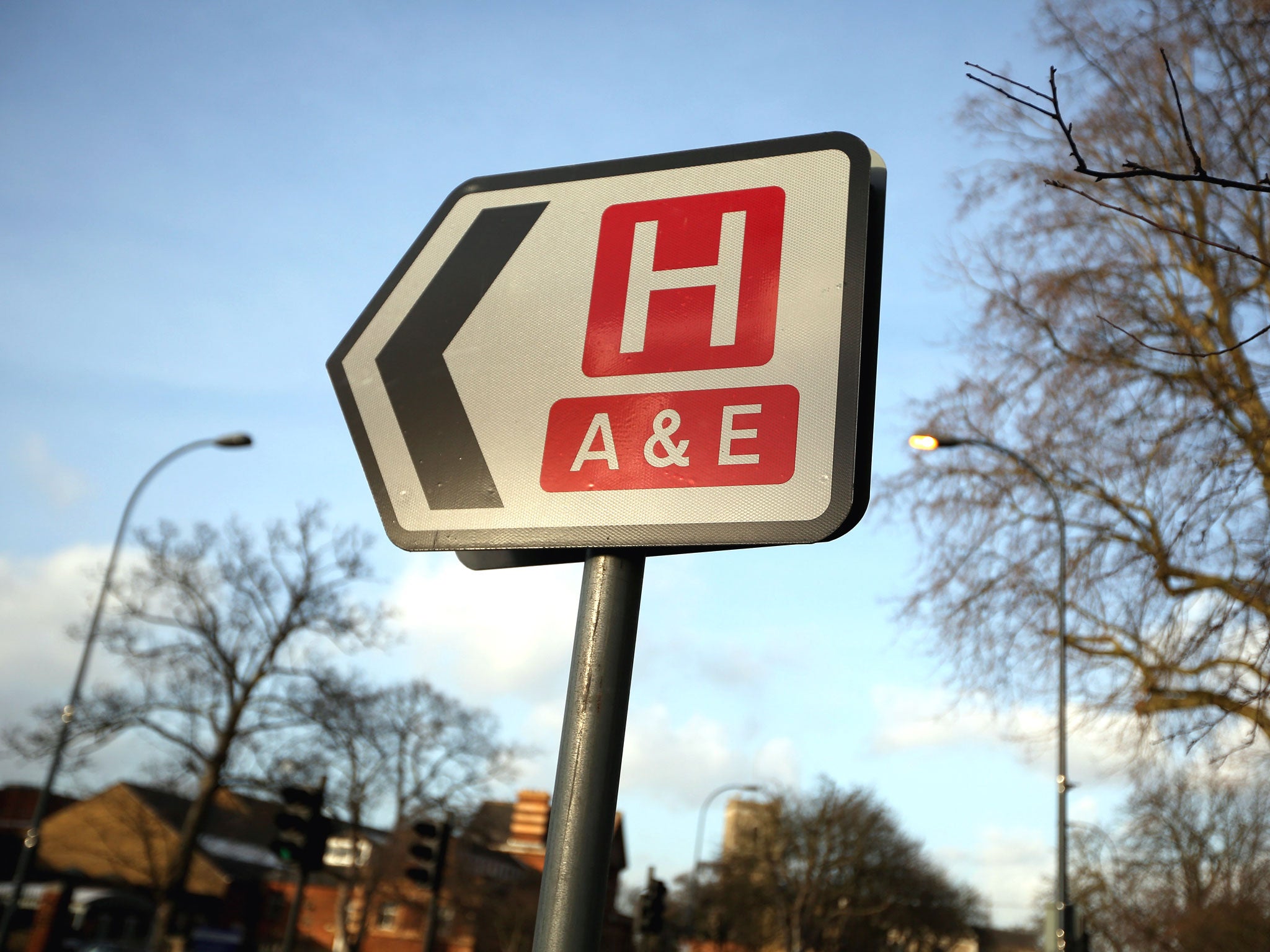Number of NHS trusts struggling financially doubles in just one year
Monitor, which regulates 147 foundation trusts, also said twice as many NHS trusts are struggling financially

Your support helps us to tell the story
From reproductive rights to climate change to Big Tech, The Independent is on the ground when the story is developing. Whether it's investigating the financials of Elon Musk's pro-Trump PAC or producing our latest documentary, 'The A Word', which shines a light on the American women fighting for reproductive rights, we know how important it is to parse out the facts from the messaging.
At such a critical moment in US history, we need reporters on the ground. Your donation allows us to keep sending journalists to speak to both sides of the story.
The Independent is trusted by Americans across the entire political spectrum. And unlike many other quality news outlets, we choose not to lock Americans out of our reporting and analysis with paywalls. We believe quality journalism should be available to everyone, paid for by those who can afford it.
Your support makes all the difference.The number of NHS hospitals breaching key cancer treatment targets has quadrupled in just one year a new report on health service performance has revealed.
Monitor, which regulates 147 foundation trusts, which make up around two thirds of the NHS Trusts in England, also the number in financial deficit has almost doubled since last year.
Government targets state that 85 per cent of patients with suspected cancer should start treatment within 62 days of being referred by their GP.
Figures for October and December 2013 show that 18 trusts breached the target – up from just four in the same period in the previous year.
However, fewer trusts missed four hour A&E waiting times targets compared to last year, as the feared “winter crisis” at A&E failed to materialise, partly thanks to low rates of flu and other respiratory disease in the mild weather.
Three other key waiting times targets were also met overall by Trusts, but performance was worse than last year.
Monitor said that foundation trusts were doing “remarkably well in tough circumstances”, but Labour claimed that progress on cancer waiting times had been “derailed” by the Government's NHS reforms.
Macmillan Cancer Support said that more breaches of the cancer target were “extremely worrying”.
Thirty-nine trusts were in financial deficit at the end of 2013, compared to 21 in 2012. Monitor said that 60 per cent of the total deficit across the sector – calculated to be £180 million – was held by five organisations which are already facing regulatory action.
A number of trusts remain in financial surplus but the total sum across the sector was lower than expected: £135m compared to a planned £175m.
A Conservative health spokesperson said that “recovery plans” were in place for struggling trusts, but claimed that more money would not necessarily mean better care.
“This Government has shone a light on poor care in a way that Labour neglected to do – and which led to tragedies like Mid Staffs – in some cases putting pressure on finances as Trusts address historical issues with nursing numbers and the like,” the spokesperson said. “We are putting recovery plans in place for any Trust in financial difficulty, but as the culture within our NHS changes, we do not accept that delivering safe and compassionate care in the longer term costs more money.”
Labour's Shadow Health Secretary Andy Burnham said that the Government's “mismanagement” of the NHS had driven up waiting times.
“David Cameron said his own re-organisation could be judged on its effect on waiting times. This is more proof it has failed on every level,” he said. “Patients with a life-threatening illness should not face these unnecessary delays. He wasted billions of pounds of front-line cash and now the number of hospitals in deficit has doubled in the space of a single year.”
Mike Hobday, director of policy and research at Macmillan said rising cancer rates meant that timely treatment was essential.
“All trusts have a responsibility to meet these targets, or they risk putting a patient’s best chance of survival at risk,” he said. “The longer a patient has to wait for treatment, the more chance they have of the cancer developing to an advanced stage. Delays between diagnosis and treatment can also cause unnecessary stress for people affected by cancer and their families. It is vital that the NHS in England provides all cancer patients with the treatment they need as soon as they need it.”
Join our commenting forum
Join thought-provoking conversations, follow other Independent readers and see their replies
Comments